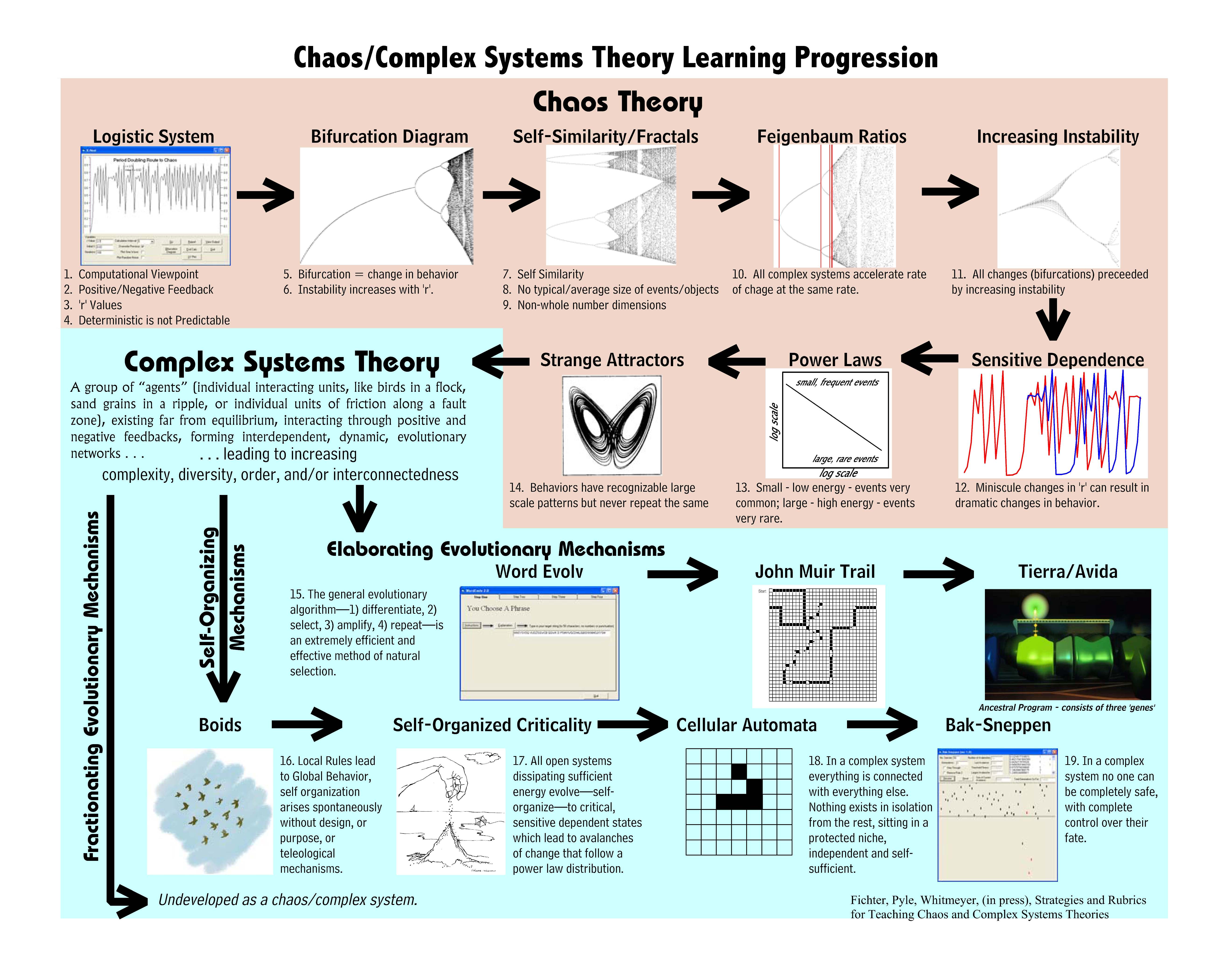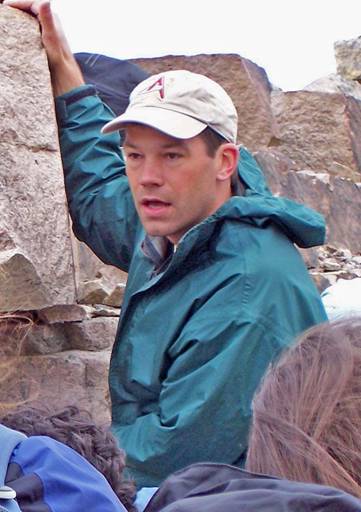James Madison University - Department of Geology & Environmental Science
Teaching Chaos and Complex Evolutionary Systems Theories at the Introductory Level
Introduction
This web site contains the support materials for two papers on elaborating, self-organizing, and fractionating evolutionary mechanisms, and the teaching of of these mechanisms using chaos/complex systems theories, as published in the Journal of Geoscience Education. Strategies, rubrics, learning outcomes, computer models of various chaos/complex systems, and sample lab experiments are available by clicking the links below.
Expanding Evolutionary Theory Beyond Darwinism with Elaborating, Self-Organizing, and Fractionating Complex Evolutionary Systems
Fichter, Lynn S., Pyle, E.J., and Whitmeyer, S.J., 2010, Journal of Geoscience Education, v. 58, n. 2, March, 2010, p. 58-64pdf of paper Journal of Geoscience Education
Strategies and Rubrics for Teaching Chaos and Complex Systems Theories as Elaborating, Self-Organizing, and Fractionating Evolutionary Systems
Fichter, Lynn S., Pyle, E.J., and Whitmeyer, S.J., 2010, Journal of Geoscience Education, v. 58, n. 2, March, 2010, p. 65-85pdf of paper Journal of Geoscience Education
A visual/spatial flow chart of the learning progression for teaching chaos and complex systems principles is here; click for a pdf version.

The strategies outlined here for teaching chaos and complex evolutionary systems theories were developed over the past 15 years or so by Lynn Fichter and Steve Baedke in several classes. Depending on the depth of exploration, a basic exploration for introductory students takes 2-5 50 minute classes.
We teach these concepts using the rubrics recommended here in at least four classes, include a general education class dealing with the Earth and its environments (GGEOL 102: Environment: Earth), the historical geology class for majors (GEOL 230, Evolution of the Earth), another general education course dedicated to evolutionary systems of all kinds (GEOL 200, Evolutionary Systems), and, a new course in the environmental science minor (ENVT 200 - Environmental Systems Theory).
The latter two courses spend more time developing the concepts, including a variety of lab demonstrations and experiments, and work more to integrate chaos/complex system concepts into the course. Syllabi for these are below.
Sample syllabi are linked here for the Evolutionary Systems, and Environmental Systems Theory classes.
 Lynn S. Fichter
Lynn S. Fichter
 Steve Baedke
Steve Baedke
 Eric Pyle
Eric Pyle
 Steve Whitmeyer
Steve Whitmeyer